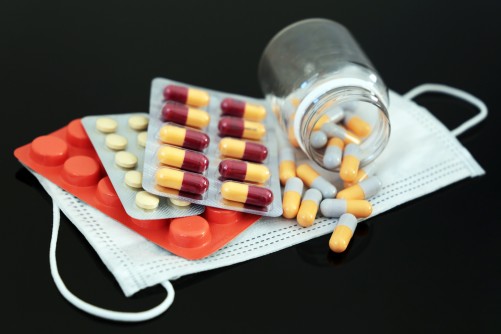According to The New York Times, the prospects for reaching “herd immunity” in the fight against COVID-19 are increasingly dim. Subsequently, the virus “will most likely become a manageable threat that will continue to circulate in the United States for years to come.”
Therefore, long-term management of the SARS-CoV-2 virus, which causes COVID-19, will be increasingly important. As with influenza, and mosquito-borne viruses, like Zika, developing better antivirals for such perennial threats will have to be a part of the plan.
Rensselaer Polytechnic Institute researchers Jonathan Dordick, a chemical engineer, and Robert Linhardt, a biochemist are developing one promising antiviral approach that uses a decoy to trap the virus before it can infect a cell.
This decoy strategy has shown promise in combating a number of viruses, including SARS-CoV-2, dengue, Zika, and influenza A.
Dordick and Linhardt, who is internationally recognized for his creation of synthetic heparin, focus on viruses that use glycoproteins to latch onto human cells, a trait common to many viruses, including coronaviruses. They study how viruses gain entry into human cells at the molecular level and identify safe, effective compounds to offer as a decoy.
In their most recent test of this viral decoy strategy on mammalian cells, Dordick and Linhardt demonstrated that a compound derived from edible seaweeds substantially outperforms remdesivir, the current standard antiviral used to combat COVID-19. Heparin, a common blood thinner, and a heparin variant stripped of its anticoagulant properties, performed on par with remdesivir in inhibiting SARS-CoV-2 infection in mammalian cells. Both compounds bind tightly to the spike protein on the surface of SARS-CoV-2, the same strategy the team employed in their previous viral work.
Story & Photo Credit: /Newswise



































